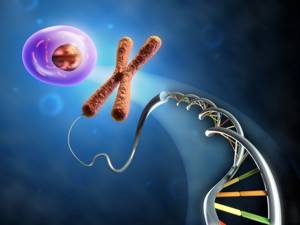“The fetus has frozen”, “The fetal heart has stopped” - these phrases are heard by about 20% of Russian women during a routine routine examination or after an extended ultrasound. And then - the cruel “You will give birth again.” It seems that it is impossible to realize and accept: just yesterday you came up with a name for the baby you carried under your heart and managed to love, and today you need to come to terms with the loss of an unborn child.
“Twice in my life, doctors said the most important words - “you are pregnant” - and the most terrible ones - “the pregnancy is frozen, we are preparing for hospitalization,” writes our reader Elena. “The first time this happened was during an ultrasound. I looked at the monitor, on which a small man with miniature arms and legs was already visible, the doctor moved the device over my stomach and noted something in the medical record. Everything happened as usual. And suddenly for some reason they started calling another gynecologist by phone. After a long meeting, the doctors delivered a terrible verdict: “We are very sorry, but your fetus is dead.” It is a fetus, not a child. This happened at 24 weeks. Three years later, I managed to get pregnant again, but I stayed in an interesting position for only 7 weeks. My friends don't understand my grief. Everyone keeps repeating like parrots: you will give birth again. I look at the only ultrasound picture of my first baby and I don’t believe that I can carry a child to term. I am tormented by a feeling of guilt in front of the baby, which doctors call an embryo.”
Elena Remez
ELENA REMEZ Obstetrician-gynecologist, candidate of medical sciences, leading specialist of the SM-Clinic holding
Main reasons
The reasons for the development of a frozen pregnancy are very diverse. The pathological condition can develop at different times. Most often it is associated with fetal gene mutations that are incompatible with life. In such cases, frozen pregnancy is most often recorded at 8 weeks of pregnancy. Women over 40 years of age are at risk in such cases.
Common provoking factors also include the following:
- The presence of chronic and/or hereditary pathologies of future parents.
- Consumption of drugs and alcohol in large quantities by a woman during pregnancy.
- Treatment of any diseases with potent drugs.
The risks of developing a frozen pregnancy increase:
- In case of Rh conflict between mother and child.
- For viral and bacterial infections.
- In case of hormonal imbalances in the mother's body.
- With multiple abortions.
- With constant stress.
Risk factors
Unfortunately, experts identify a number of such reasons, and all of them are somehow related to the mother’s health. We are talking about the following factors:
- The mother has alcohol, nicotine or drug addiction,
- Chronic kidney diseases,
- Systemic connective tissue diseases,
- Uncompensated diabetes mellitus,
- Arterial hypertension in severe form,
- Uncompensated thyroid diseases,
- Low body mass index,
- Stress.
Symptoms in the early stages
According to statistics, frozen pregnancies are most often detected in the early stages. The period up to 8 weeks is important for the development of the embryo. It is at this time that the probability of genetic mutations that can lead to fetal death is very high.
A frozen pregnancy, the signs of which are often absent in the early stages, can only be detected at the next scheduled visit to the doctor. Very often, when a pathological condition occurs, a spontaneous miscarriage is recorded.
The question of how to determine a frozen pregnancy before 12 weeks on your own is quite complex. Only attentive women can suspect a problem based on indirect signs. In particular, the following symptoms should alert you:
- Minor nagging pain in the lower abdomen.
- Disappearance of manifestations of toxicosis.
- The appearance of spotting discharge.
- Disappearance of painful sensations in the mammary glands.
The listed manifestations should be a reason to urgently contact a gynecologist. The doctor will clarify the situation and, if fears turn out to be unfounded, will recommend what medications to buy or measures to take to stabilize the condition and prevent spontaneous miscarriage.
Why did the pregnancy stop after IVF?
A positive pregnancy test after embryo transfer is one of the happiest moments and probably the most anticipated for a childless couple who have decided to undergo IVF.
Life takes on a new meaning, new worries appear, and the next 9 months turn out to be scheduled almost hourly. It is difficult to imagine the disappointment of future parents who heard words that are more like a sentence: “frozen pregnancy”... The total number of pregnancies after IVF ending in termination for various reasons ranges from 15 to 30%, depending on age. And a third (6-9% of the total) of them are frozen.
What is this and why does this happen, both during normal pregnancy and after IVF?

Late symptoms
In the second and third trimester of pregnancy, frozen pregnancy is also characterized by the occurrence of minor pain in the lower abdomen and mild bleeding. But the main symptom is the absence of fetal movements, the size of which during this period is quite large.
It is important to remember that if the fetus does not move during the day, this may be due to the umbilical cord entwining the unborn child’s neck. In this case, if emergency medical assistance is provided, the situation can be corrected. In most cases, the child is then born healthy.
If measures are not taken, then as the fetal tissue decomposes, amniotic fluid with a pronounced putrid odor may begin to leak. Against this background, the size of the abdomen decreases. You should also pay attention to the condition of the mammary glands. Against the background of a frozen pregnancy, the breasts in late pregnancy shrink to normal sizes. Sometimes there is additional secretion of breast milk.
Frozen pregnancy

If such concepts as “ectopic pregnancy” or “miscarriage” are known to most women, then many never know about “frozen pregnancy” (especially in the early stages) until, unfortunately, they personally or someone close to them encounter it . About the causes of frozen pregnancy and how to avoid it, our conversation with gynecologist-endocrinologist, pediatric gynecologist at the TANAR Family Clinic Natalya Karaseva. — Natalya Vasilievna, what is a frozen pregnancy? — A frozen pregnancy is the death of a fetus in the womb. If, based on the results of an ultrasound, a woman is diagnosed with a “frozen pregnancy” in question, then to be sure, we send her to donate blood for hCG. If the indicators do not correspond to the duration of the pregnancy, it means that it was terminated. If the term is up to 7 weeks, then we go for a medical termination of pregnancy. If the period is longer, then vacuum-aspiration removal of the fertilized egg or curettage is performed in a hospital setting. — What are the signs of a frozen pregnancy? What is the danger of a frozen pregnancy for a woman (in cases where the development of the fetus has stopped, but she does not yet know about it). — Fetal death in the early stages can be unnoticed by the pregnant woman for a long time. Later, this may be signaled by spotting, cramping pain in the lower abdomen and a sudden cessation of toxicosis (if there was any). Previously painful mammary glands may no longer bother you, perhaps a decrease in basal temperature. In the later stages, a frozen pregnancy can be felt by the mother when the fetus stops moving. The presence of a dead fetus in the uterus is unfavorable for a woman. This leads to inflammatory processes and intoxication of the body. Therefore, you need to consult a doctor as soon as possible. — How informative is the histology analysis after cleaning? Is it important to have it on hand? — Histology analysis can reveal the cause of a missed abortion — genetic pathology, infection of the fetus, etc. If the analysis is done, it is advisable to have it on hand. As a rule, histology results are stored along with the patient’s hospital record for five years.


be sure to prepare. Before planning a pregnancy, we always tell a woman that she needs to be examined, have smears for infections, blood tests for TORCH infections, and treat chronic inflammatory processes. When planning a pregnancy, we prescribe a complex of vitamins for conception. Tatarstan is an iodine-deficient region, and the child takes the remaining iodine from the woman. This element is extremely important for the formation of the fetal brain - “for a smart child.” It is recommended to start taking folic acid three months before conception. It is necessary for the formation of the neural tube and spinal cord (if it is not enough, then spinal hernias will form, which can cause pathology or death of the fetus). When planning a pregnancy, both partners must be healthy, they need to get rid of bad habits, eat properly, and lead a healthy lifestyle. During pregnancy you need to feel happy and let the whole world wait!
Interviewed by Svetlana Maracha
Diagnosis and treatment
To diagnose a frozen pregnancy, the doctor first examines the woman and then prescribes an ultrasound. As a rule, this is enough to confirm or refute the pathology. In this case, the following data obtained from ultrasound indicate a frozen pregnancy:
- In the early stages - incorrect location of the fertilized egg and ruptures in it.
- In the later stages, there is a lack of fetal heartbeat and a discrepancy between its size and the affected period.
If the death of the fetus is confirmed during the examination, then measures must be taken to remove it from the uterine cavity. At different times this is done using different methods:
- In the first trimester of pregnancy, a medical abortion is usually prescribed. This method has contraindications. If they are present, the traditional method of artificial termination of pregnancy is used - curettage.
- In the second trimester, labor is artificially stimulated in various ways in order to provoke a miscarriage.
- In the third trimester, an emergency artificial birth is performed.
Are any other steps necessary?
Vacuum aspiration requires further monitoring via ultrasound, the doctor needs to make sure that the embryo is completely removed. Otherwise, additional suction of the remaining tissue in the uterus will be required.
After curettage, the patient must undergo a rehabilitation period, which, in the absence of complications, ranges from 10 to 14 days and includes taking antibacterial drugs, hormonal contraceptives and sexual abstinence. After this period, an ultrasound is required to assess the condition of the uterus, and the specialist must also make sure that the embryo is finally removed.
Complications
If the dead fetus is not removed from the uterine cavity in a timely manner, its decomposition begins. This leads to intoxication of the body and the development of dangerous complications. In severe cases, an abscess develops and there is a risk of blood poisoning, which poses a threat to the woman’s life.
A frozen pregnancy can cause the development of endometritis, which is characterized by inflammation of the uterine cavity due to infection with pathogenic microorganisms. Also, if the dead fetus is not removed in a timely manner, severe uterine bleeding may occur.
Termination of pregnancy always has a negative impact on women's health. Therefore, it is imperative to undergo rehabilitation. It is important to follow all doctor's recommendations. Very often, after a missed pregnancy, mental disorders arise that are associated with internal fear of the next pregnancy. In such cases, recovery requires additional treatment from a psychotherapist. It is recommended to plan your next pregnancy no earlier than six months later.
When can you try to get pregnant again?
The rehabilitation period depends on the period at which the pregnancy loss occurred.
If this happened in the first trimester (the period from the 3rd to the 8th week is especially dangerous, when the child’s internal organs are forming), then it will take six months to restore the body. “During the first month, excessive physical activity, visiting baths, saunas, and sexual intercourse are prohibited,” the doctor notes. “It is also recommended during this period to undergo a full examination and consult with a psychologist and geneticist.”
Treatment is individual for each woman. The doctor may prescribe hormonal therapy, genetic tests, examinations for sexually transmitted infections, MRI of the pelvic organs, etc. In some cases, laparoscopy or hysteroscopy is necessary.
Why does the fetus freeze?

Frozen pregnancy can be caused by:
- abnormal manifestations associated with the genetics of the family;
- dysfunction of the female reproductive system;
- disturbances in a number of chromosomes of the embryo;
- endometriosis of a woman's ovaries.
The risk increases if the woman is not of reproductive age, and also if she has previously had several miscarriages. If a pregnant woman delays contacting a specialist, and the frozen fetus remains in the uterus for 2 to 6 weeks, pain in the lower abdomen with heavy discharge will appear. The consequences of late contact with a specialist can be disastrous, including removal of the reproductive organs. The photo obtained during the examination with an ultrasound sensor will provide results in real time, which will clearly display the condition of the embryo.
Gynecological cleansing
Several weeks may pass from the moment the fetus dies until it is rejected by the uterus. The remaining traces of the deceased embryo provoke the development of the inflammatory process, bleeding and other complications. To eliminate risks, doctors recommend undergoing gynecological cleansing.
The procedure is performed under general anesthesia and usually takes about 15-20 minutes. In rare cases, complications may occur. The obtained tissue samples are sent to the laboratory for histological analysis. Genetic testing helps determine the cause of miscarriage. Histology determines the presence or absence of atypical cells in the uterus.
Folic acid (B9)
It has been proven that taking vitamin B9 a month before conception and the first three months after it reduces the risk of embryo development abnormalities by 50%. It is required at the planning stage of pregnancy and at the moment of its conception in the body. The daily dose of the drug should be 400-800 mcg. Some women limit themselves to taking multivitamins, forgetting to evaluate the folic acid content in them. The dosage is determined by the attending physician based on the situation, the health of the pregnant woman, and the characteristics of her body. Additionally, it is recommended to include spinach, citrus fruits, broccoli and cabbage, kiwi, and strawberries in your diet.
Do not be afraid of exceeding the dose of vitamin in the body. It has a water-soluble base, so it is easily excreted along with urine. However, cases of overdose were still noted in medical statistics.
A doctor’s prescription of an increased B9 standard is justified in the following cases:
- if the mother already has a child with an abnormality of the nervous system;
- if you are overweight;
- while taking anticonvulsants;
- with anemia detected as a result of blood tests, which is caused by a lack of folic acid in the body.
The dose of the drug in these cases can be increased to 5000 mcg.
Sixth week for the expectant mother
If the cycle is delayed by two weeks, which corresponds to the sixth obstetric week, the woman may experience increased symptoms of toxicosis. Often nausea begins to lead to vomiting. If this happens more than two or three times a day, you should contact a specialist. Vascular permeability changes in the breast due to changes in hormonal levels. Therefore, the feeling of fullness of the glands may be accompanied by a periodic tingling sensation.
A woman in the sixth week is often accompanied by irritability, drowsiness, fatigue and weakness. All of these symptoms are a consequence of the influence of hormonal levels, which try to create the best conditions for the development of the child. Experts note that the severity of toxicosis directly depends on the emotional state of the woman. Therefore, the expectant mother should limit physical activity, avoid stressful situations, and ensure positive emotions and good mood.
Women may develop new taste preferences. Undoubtedly, it is necessary to ensure the comfort of the expectant mother, but one should not forget about common sense when choosing a diet. Even if you are attracted to harmful foods, you should not consume them; of course, smoking and alcohol are contraindicated. It is undesirable to consume smoked meats and any products containing chemical elements. The more correct the diet, the more benefits it can bring to the future baby.
Special attention should be paid to water balance. Dehydration can only worsen toxicosis, so it is important to monitor the amount of fluid consumed. Sometimes fruits, water and juices even become the only possible food for a woman.
Seventh week for the expectant mother
From the seventh week, a woman’s uterus begins to grow; this can be determined by a specialist during a gynecological examination. At this stage, many expectant mothers experience an enlarged abdomen, which is one of the main signs of pregnancy. The growth of the uterus and the size of the embryo cannot cause an enlarged abdomen. This occurs due to the action of progesterone, which leads to lethargy of the intestinal loops, as well as a decrease in the tone of the anterior abdominal wall. Bloating occurs, which is the cause of visible changes in the abdomen.
Increased urination is a consequence of the fact that the total volume of blood in the female body increases. This change will accompany the expectant mother throughout pregnancy and will especially manifest itself in the last trimester. If pain occurs when urinating, then there is a reason to visit a doctor, since this is not considered normal. Changes in bowel function are possible; constipation and diarrhea may occur with equal probability. The reasons may be a change in the usual diet or hormonal levels. Since regular daily bowel movements ensure the timely removal of waste from the body of the expectant mother, it must be carefully monitored. If you have problems with bowel movements, you should consult a specialist.
Dangerous timing: when can it happen?
Fetal development can stop at any time up to 28 weeks (in rare cases, cessation of development can occur later), but the greatest likelihood of such a pathology occurs in the first trimester. There are also several periods with the highest risks of frozen pregnancy, these include the following periods:
- 3-4 weeks;
- 8-10 week;
- 16-18 weeks.
It is these periods that most often become critical for pregnancy.











